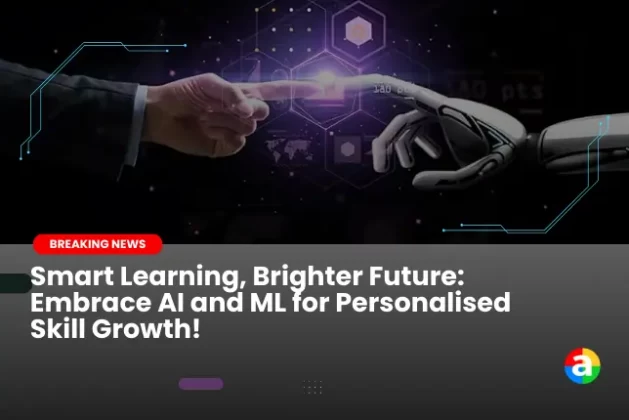Summary –
- Machine learning and Generative AI are revolutionising the future of education by providing personalised and adaptive learning experiences. These technologies, fueled by real-time data analysis, are transforming the educational landscape by catering to specific skill gaps, learning styles, and career goals.
- The integration of virtual assistants and chatbots is also transforming learning interactions. However, ethical considerations, such as data privacy and algorithmic bias, are crucial for creating an inclusive and equitable learning landscape.
Table of Contents
ToggleIntroduction
In the dynamic landscape of technology, the pace of change has accelerated, rendering traditional learning methods obsolete. The demand for continuous upskilling has never been more critical, driven by rapid technological advancements, evolving market trends, and dynamic industry requirements. To navigate this ever-changing terrain, professionals are turning to Generative AI (Gen AI) and Machine Learning (ML) for personalised and adaptive learning experiences.
Personalized Learning Paths: A Glimpse into the Future
According to Verified Market Reports, the global personalised learning market is poised to reach $21.20 billion by 2025, growing at a remarkable CAGR of 18.4%. Gen AI and ML are reshaping the educational landscape by curating tailored learning paths. Ed-tech providers leverage these technologies to analyse individual learning preferences, interests, and progress in real time. The result? Personalised courses, simulations, and micro-learning modules that cater to specific skill gaps, learning styles, and career goals.
Virtual Assistants and Chatbots: Beyond Text-Based Learning
The integration of AI-driven virtual assistants and chatbots in education is transcending traditional text-based interactions. Fueled by AI, natural language processing, and machine learning, these smart assistants deliver rich, context-sensitive, and personalised user experiences. Market projections indicate a staggering 22.5% growth in the chatbot market from 2020 to 2027, reaching a value of $1,953.3 million. They not only enhance learning interactions but also signify a paradigm shift in how people prefer to learn and work.
Addressing Engagement Challenges with Innovative Techniques
Learner engagement is a perennial challenge for Learning and Development (L&D) teams. Techniques such as gamification, microlearning, and the shift to Learning Experience Platforms (LXP) are gaining prominence. Chatbots and virtual assistants contribute to round-the-clock assistance, fostering personalised, engaging, and efficient learning interactions.
Real-Time Data: Shaping the Future of Skill Evaluation
In the digital age, real-time data takes centre stage. Gen AI, coupled with powerful ML algorithms, continuously analyses data from various sources, providing insights into emerging strengths, weaknesses, and potential skill gaps. This proactive approach empowers organisations to stay ahead of the curve, addressing skill gaps before they become critical challenges.
Efficient Resource Allocation: The Role of AI in Learning Paths
Efficient resource allocation is crucial for organisational success. AI-powered content management and recommendation systems analyse factors like employee strengths, workload, project deadlines, and learning preferences to recommend personalised resources. This predictive capability ensures individuals receive the most relevant and effective resources tailored to their unique needs.
The Ethical Imperative: Guiding the Future of Learning
As we embrace Gen AI and ML in L&D, ethical considerations are paramount. Issues such as data privacy, algorithmic bias, and the potential for AI to exacerbate inequalities demand careful attention. Responsible AI practices, ensuring transparency in data usage, can harness these technologies for good, creating an inclusive and equitable learning landscape.
For more such updates, follow: Analytics Jobs
Conclusion: Shaping a Future of Inclusive and Empowering Learning
The future of learning is personalised, immersive, and data-driven, spearheaded by Gen AI and ML. In this transformative journey, responsible AI practices become imperative to create a more inclusive, equitable, and empowering learning landscape for all.



